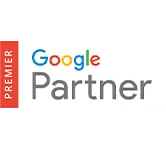Ranking higher on the SERPs is no less than a dream for online businesses. The theory is not just about being on Google; where you appear is what matters the most. So, if you are a business that has stuck on the second page ranking, search engine positioning is the strategy you might be missing.
In this article, we will break down what search engine positioning is, why it matters, best search engine position checkers, and more. So, get ready to uplift your digital game, attract more traffic, and generate more sales and revenues this year.
What is Search Engine Positioning?

Search engine positioning is the process of optimizing each page of a website to rank higher and/or show up in more places on a search engine results page (SERP). In simple terms, it improves and optimizes web pages to obtain a better search engine ranking for particular keywords.
In digital marketing, search engine positioning is considered a fraction of search engine optimization (SEO), where the main focus is on achieving a higher ranking on a particular web page.
Remember that the it doesn’t include any other aspects of the search engine optimization, like link building, creating XML and HTML sitemaps, etc. But rather, it includes utilizing various SEO tools and strategies to improve the visibility on the SERP.
Additionally, it also involves opting for Google Keyword Planner, one of the best keyword research tools, to navigate the most relevant and trending keywords to target the audience as deeply as possible.
Why Is Search Engine Positioning Important?
Struggling to rank high on Google? This is where search engine positioning comes to light. Take a look at its importance broken down below:
Increases Visibility on SERP:
Revamping and improving the content of the page based on the latest, most relevant, and trending keywords leads to an increase in the visibility of webpages on the SERP.
Boost in Organic Traffic:
Without using paid advertisements, search engine positioning increases your website’s visibility, organic traffic, and competitiveness, resulting in more lead generation and conversions.
A Higher Click-Through Rate:
Ranking or position on the SERP is the key factor in gaining more clicks on the page’s link. For example, a page ranked #1 will get more clicks than a page ranked #6.
Low Dependence on Paid Ads:
Organically ranking higher on the result pages of Google reduces the dependence on paid ads for traffic and conversions, ultimately saving the money that you would have paid for campaigns.
Search Engine Positioning vs SEO: What’s the Difference?
As people are confused about what to choose, SEO strategy or search engine positioning, to rank their pages higher, we have curated a table displaying all the major differences between these.
| Topic | Search Engine Positioning | Search Engine Optimization |
| Meaning | Improvement in the content to boost the ranking of a specific page of a website. | A full-fledged strategy to boost the visibility, traffic, and ranking of a website on a search engine. |
| Scope | Targets one page at a time with changes, like content tweaks, keyword targeting, and better titles. | Improves site speed, mobile use, content, links, and more. |
| Intent | The purpose is to rank a specific page higher on the SERP. | Create a solid website foundation for sustained success. |
| How Fast Does It Work? | Faster results for targeted keywords or pages. | Slower but stronger over time. |
| When to Use? | Used when the goal is to improve the ranking of a particular page. | Used when the objective is to grow the entire site. |
How to Improve Search Engine Position?
Looking for the core strategies that can improve your ranking on SERPs and attract more traffic? You have landed at the right place. Check out the powerful strategies to boost your search engine position outlined below:
Updating the Old Content
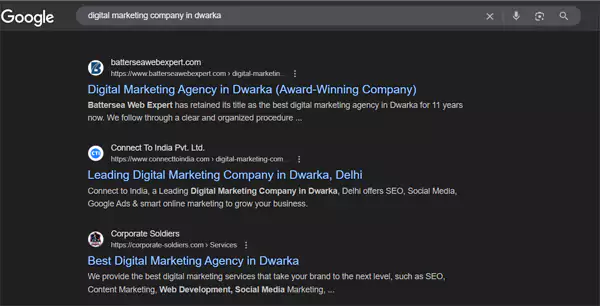
Verifying if all the pages of your website are fully SEO optimized or not is the very first step of the search engine positioning. Make sure that the pages are 100% optimized, starting with the pages that are ranking on the first page.
If you are already near the first few SERPs, it means Google already considers your content as one of the most relevant results. But now what you need to do is to improve the existing content to be near to the most relevant result.
Using the Relevant and Trending Keywords

Make sure to use the keywords that are most relevant to the intent of the query. This helps in targeting a specific audience, leading to higher conversion of the generated leads.
To find these keywords, use advanced research tools, like Google Search Console or a search engine position checker, to identify which keywords are already bringing traffic, then expand on them.
Optimizing the Meta Tags and Headings
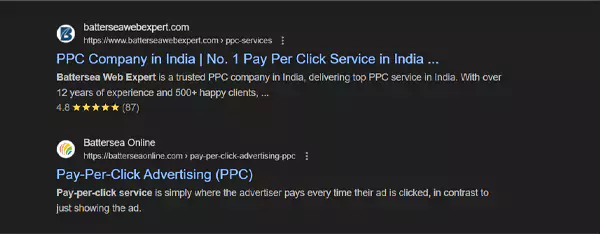
Meta tags and headings are the first things that a viewer sees while searching for their query. So, neglecting improvement on this aspect can be a potential reason for your webpage’s lower ranking.
Make them interesting and full of keywords. Additionally, use distinct H1, H2, and H3 headings to organize your information and convey the main idea of the site. This improves the comprehension of your content by search engines and readers alike.
Speed Up Pages and Make Them Mobile-Friendly
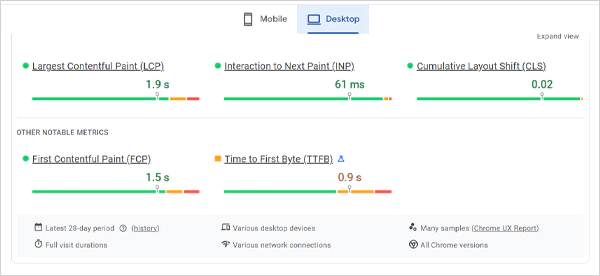
Page speed and mobile friendliness are two of the most crucial ranking factors. Thus, to stand stiff on these aspects, use compressed images, use browser caching, and avoid unnecessary scripts.
Moreover, make sure that the website is responsive, which means pages need to appear and work properly across all screen sizes.
Utilizing Internal Linking Strategy
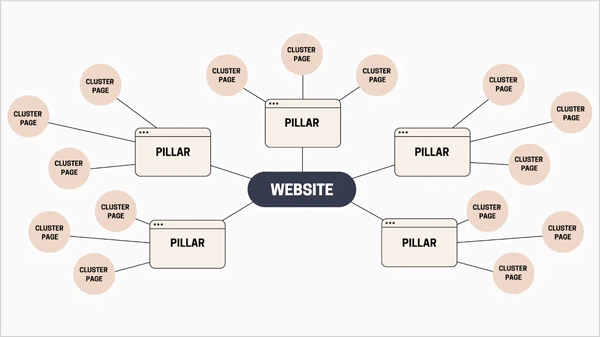
Since your page has improved a lot, it’s time to make internal links pointing to it. You need to add internal links to your webpages, directing visitors to other pages of your website, to build authority for your website.
For an optimal internal linking strategy, opt for a linking structure strategy where all the pages will be ultimately linked to the main page.
Best Search Engine Position Checker
Now, let’s see and check what the best tools are to check the search engine position of your optimized, updated webpages. Thus, we have mentioned 4 of the best tools:
Google Search Console
- A free tool that tracks the performance and search rankings of keywords.
- Displays the CTR, impressions, and average position.
- Finds the best-performing pages.
- Provides information on indexing and mobile usability.
- Perfect for both novices and experts.
- Free of charge and seamlessly incorporated into your website.
Ahrefs Rank Tracker
- Monitors keyword rankings on a daily or weekly basis across devices and nations.
- Enables you to monitor by URL and aggregate keywords.
- Examine your performance in comparison to that of your competitors.
- Simple filters and graphs that can be customized.
- Ideal for experts and groups in charge of significant SEO campaigns.
Semrush
- Analyzes keyword rankings by device, city, or country.
- Keeps track of Google SERP elements, including reviews, FAQs, and snippets.
- Google Data Studio integration for personalized reporting.
- Perfect for agencies and users at the corporate level.
- Enables benchmarking of competitors within projects.
Ubersuggest
- Track keywords every day on desktop and mobile devices.
- Offers keyword recommendations along with competitive information.
- Ideal for beginners and users on a tight budget.
- There is a limited free plan available; a subscription provides complete access.
- Includes backlinks, traffic statistics, and a domain overview.
Final Thoughts
The higher you climb on SERPs, the more traffic, sales, and revenue you will generate for your business, and to achieve all this, you need to uplift your search engine position. Though search engine positioning is not just a technical task, it’s a strategic move to boost your brand’s online presence and visibility.
So, bookmark the above-mentioned recommendations and, along with that, stay consistent, track your progress, and check what works best for your business.
Frequently Asked Questions
Q. What is search engine positioning?
Ans: Search engine positioning is a process of improving the ranking of a particular webpage by targeting a specific set of relevant keywords.
Q. What key strategies improve the search engine positioning?
Ans: The key strategies involve keyword research, on-page optimization, content creation, and improvement in website structure.
Q. How do search engines determine website positioning?
Ans: Search engines use complex algorithms that consider several factors while evaluating webpages, including the quality of the content, on-page optimization, user experience, etc.
Q. How can I check the current search engine positioning of my website’s page?
Ans: You can use research and analytics tools, like Google Search Console, Semrush, Ahrefs, etc., to determine the latest search engine ranking of your page.




